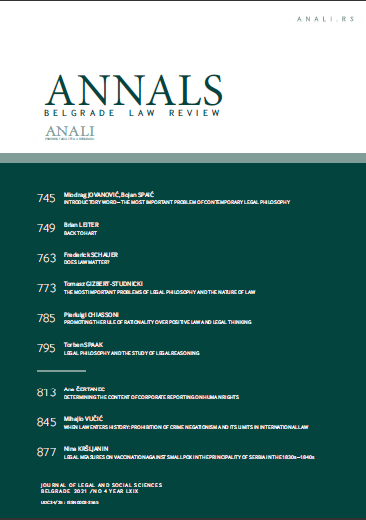WHEN LAW ENTERS HISTORY: PROHIBITION OF CRIME NEGATIONISM AND ITS LIMITS IN INTERNATIONAL LAW
WHEN LAW ENTERS HISTORY: PROHIBITION OF CRIME NEGATIONISM AND ITS LIMITS IN INTERNATIONAL LAW
Author(s): Mihajlo A. VučićSubject(s): International Law, Human Rights and Humanitarian Law
Published by: Правни факултет Универзитета у Београду
Keywords: Freedom of expression;Memorial laws;Hate speech; Genocide;Human rights
Summary/Abstract: The topic of this article is the interaction between the freedom of expression and the memorial laws concerning historical crimes. The author offers an analysis of the phenomenon of negationism through the prism of international law. The article is based on two interrelated hypotheses. The first is that the prohibition of negationism has a legal foundation in international law only if accompanied by the ability to incite hatred or violence. For this purpose, international and regional European standards on negationism are analyzed. The second hypothesis is that in the practice of implementation of memorial laws, the border between hate speech and legitimate historical denialism becomes blurred. This fact might lead to excessive encroachment upon the freedom of expression. The author offers an analysis of the practice of the European Court of Human Rights as a referential framework for the application of memorial laws in practice aimed at evading these excesses.
Journal: Анали Правног факултета у Београду
- Issue Year: 69/2021
- Issue No: 4
- Page Range: 845-874
- Page Count: 30
- Language: English

